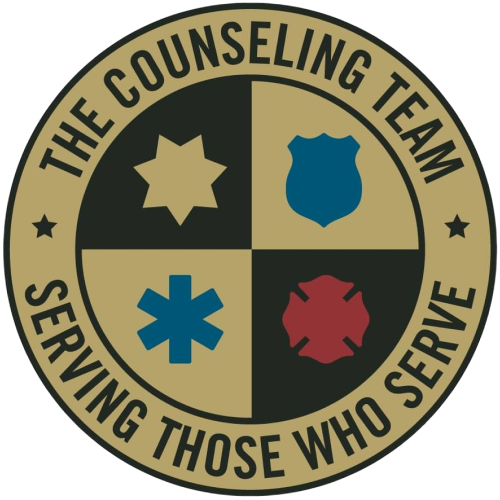By Dr. Stephen Odom, PhD, and Chris Catren, Ret. Chief of Police, Redlands, CA
One of the greatest challenges law enforcement officers face is keeping their families whole and healthy throughout their career. As officers serve and protect the community, they face high stress circumstances that often affect physical and emotional health. The result of this impact affects their spouses and children as well. Law enforcement families are up against difficult odds, as first responders have significantly higher rates of alcohol misuse compared to the general population1 and their families face a unique set of life circumstances that can make it challenging to relate to others.
Law enforcement officers are exposed to traumatic situations because of the critical nature of their role2. This consistent exposure to trauma can lead to stress, anxiety, post-traumatic stress, depression, substance abuse, and suicidal ideation2 .
It is essential to recognize how the entire family is affected so that leadership can safeguard the wellness of the family unit. Outside of the effects of trauma, officers and their families often face disrupted routines, lack of communication, anger, social isolation, and missed expectations. These can weigh heavily on partners, spouses, and children – as they often deal with secondary traumatic stress3. However, when the family is healthy, the workplace can also become a more efficient and effective environment.
Implementing wellness strategies to help officers improve their family life can help them thrive at work and home. While every family dynamic is unique, adopting this basic blueprint is a great beginning for law enforcement family health:
- Open Communication: Encourage open and honest communication within the family about the challenges and stressors associated with the occupation as a law enforcement professional. Create a safe space for children to ask questions, express their feelings, and share their concerns. Use age-appropriate language and answer questions at the age/maturity level being asked.
- Establish Routine and Predictability: Implement consistent routines and schedules to provide children with a sense of stability and predictability, even with the unpredictable nature of an officer’s work schedule.
- Provide Education: Educate children about their parent’s job and help them understand the importance of their work in serving the community. Give them age-appropriate information and coping strategies for managing any stress and anxiety they may experience.
- Seek Support: Encourage family members to seek support from each other, as well as from support groups, counseling services, and community organizations. Don’t let them go at it alone.
- Self-Care for Parents: Recognize the importance of self-care for first responders and encourage significant others to prioritize their own mental, emotional, and physical well- being. By taking care of themselves, parents can better support their children’s needs and navigate the challenges of their demanding profession.
While the officer is away at work, much of the daily tasks tend to fall on the parent at home. This can create isolation, tension and stress as children may take the parent at home for granted and the parent begins to burn out4. There must be a strong support system for the parent who fills the role of two parents when their spouse is on shift.
It is essential for chiefs to also prioritize their own family, not only for the sake of their spouse and children, but also for their officers. The department must see that leadership truly cares for your family and puts them first in their life, even as they navigate the responsibility of their role. There are no secrets in the police department – chiefs must set an example where they can.
“You have to live it,” said Chris Catren, retired Chief of Police for Redlands, California. “It’s a disciplined approach to making sure it’s not only something you’re saying is good for your officers, but something you’re demonstrating as well. You have to make it a habit.”
“Your family didn’t sign up for this – you did,” Chief Catren notes, as the commitment to a law enforcement career isn’t easy. “It’s an awesome responsibility, but you need to take your family into consideration and show them they are cared for and explain to them why this job can take so much.”
Be proactive in prioritizing your family, don’t let them fall to the wayside or be left picking up what’s left in the future. “There’s additional pressure with chiefs. You’re bringing everything home,” Chief Catren explained. “Make your family a priority. When the phone rings, you need to answer, that’s a part of the job. But when you can change it, change it.”
Law enforcement leadership must take the impact of their influence seriously and support their officers, as well as their own families. Chiefs can create programs that begin at the academy level and continue toward retirement to provide resources that will benefit officers and their families. They can host events to build family engagement at the station or provide education through certified training courses to give their officers all the tools they need to work towards a healthy home life. With the wellness of law enforcement families on the line, leadership must be proactive in this issue, not reactive.
By implementing strategies that prioritize communication, routine, education, community support, and self-care, law enforcement agencies can create an environment that strengthens the family unit. Agencies can enhance the overall resilience, retention, and effectiveness of their workforce, ultimately benefiting both the officers and the communities they serve by investing in families.
Dr. Stephen Odom is a notable behavioral health professional with more than 30 years of expertise. He is the Founder/Chief Clinical Officer of First Responder Wellness in Newport Beach, California, Founder/Chief Executive Officer of Shift Wellness, and Dr. Odom is the Chief Executive Officer at The Counseling Team International.
Chris Catren served the city of Redlands, California, as Chief of Police for over five years. He then served as the President of the California Police Chiefs Association and is now the Immediate Past President.

